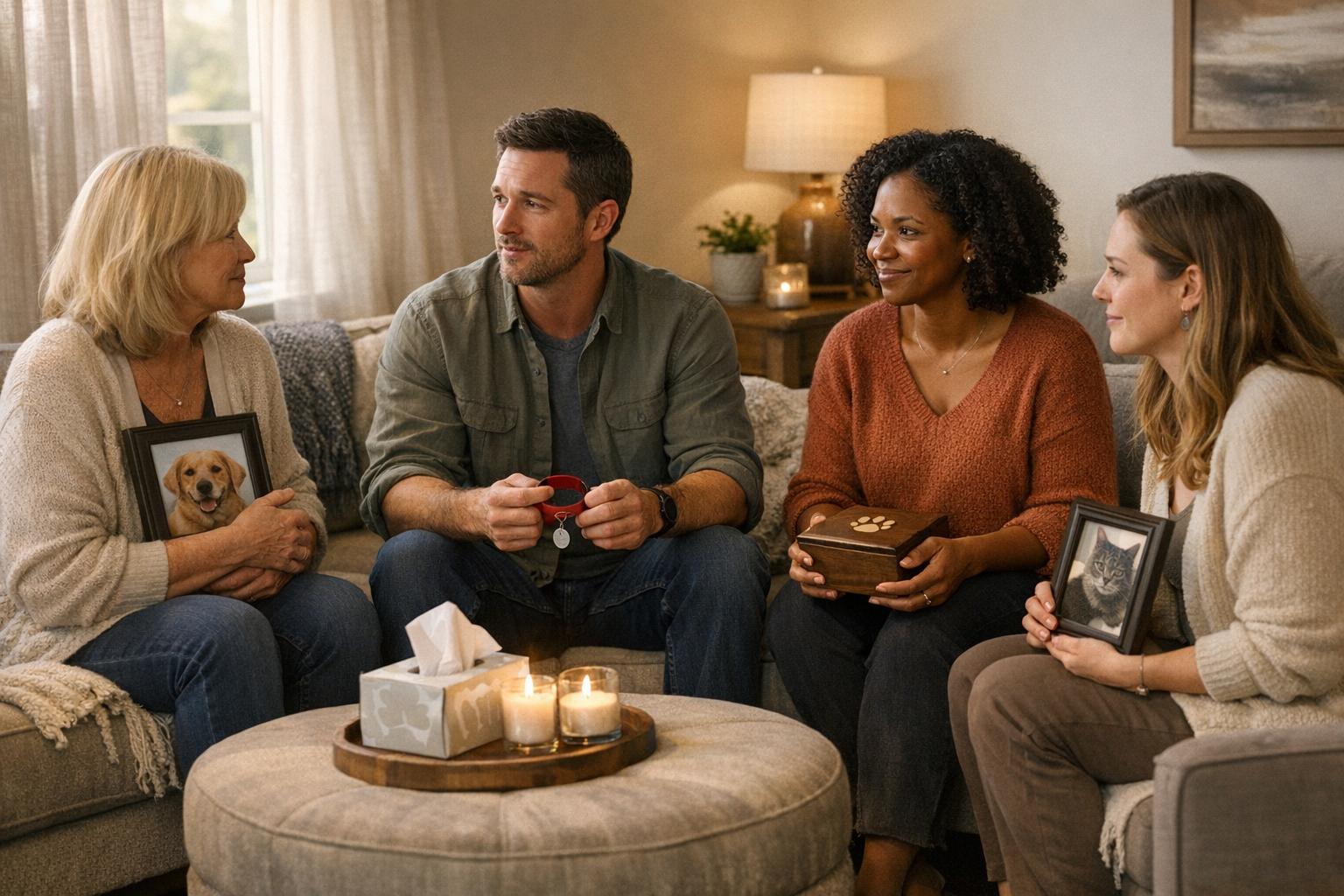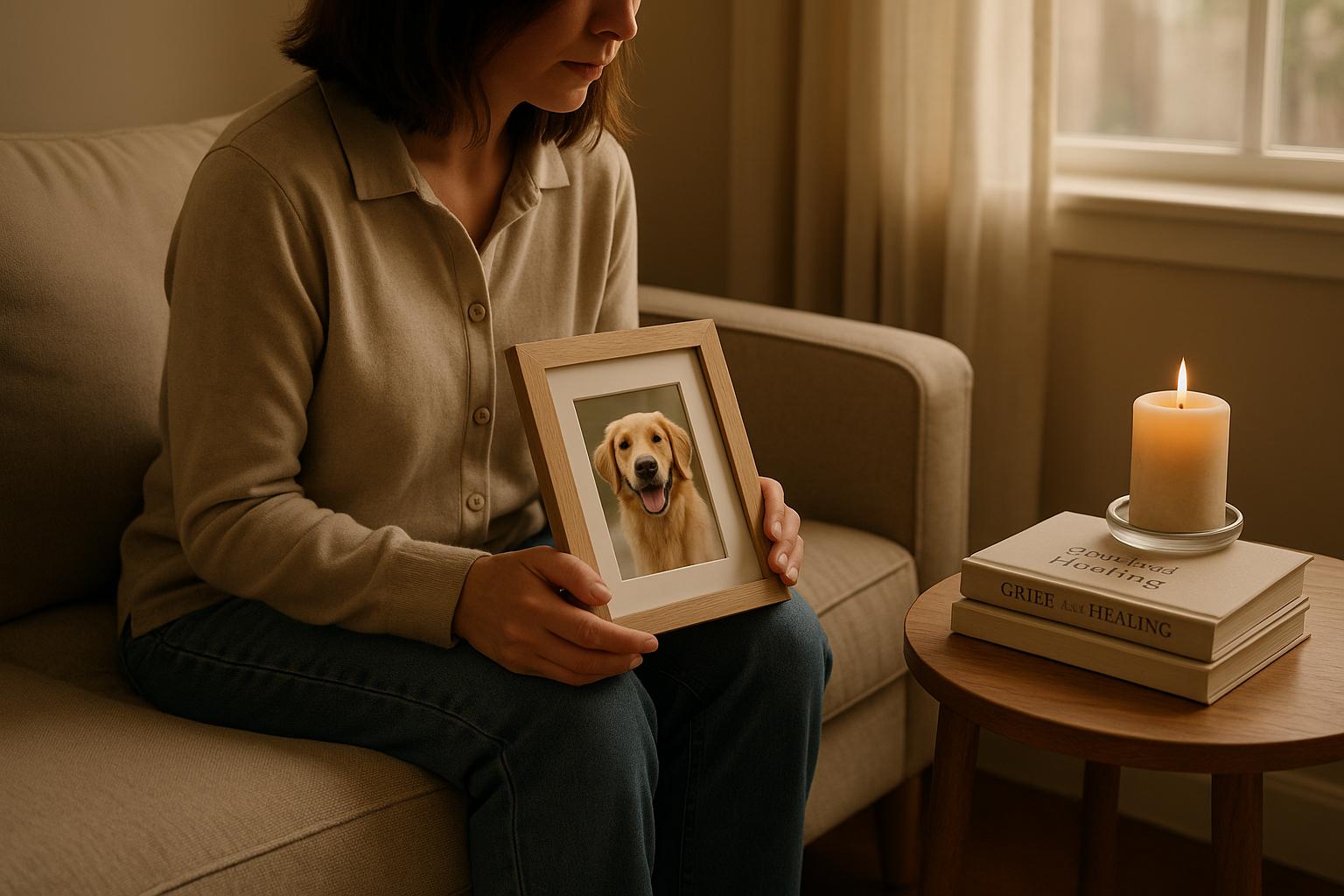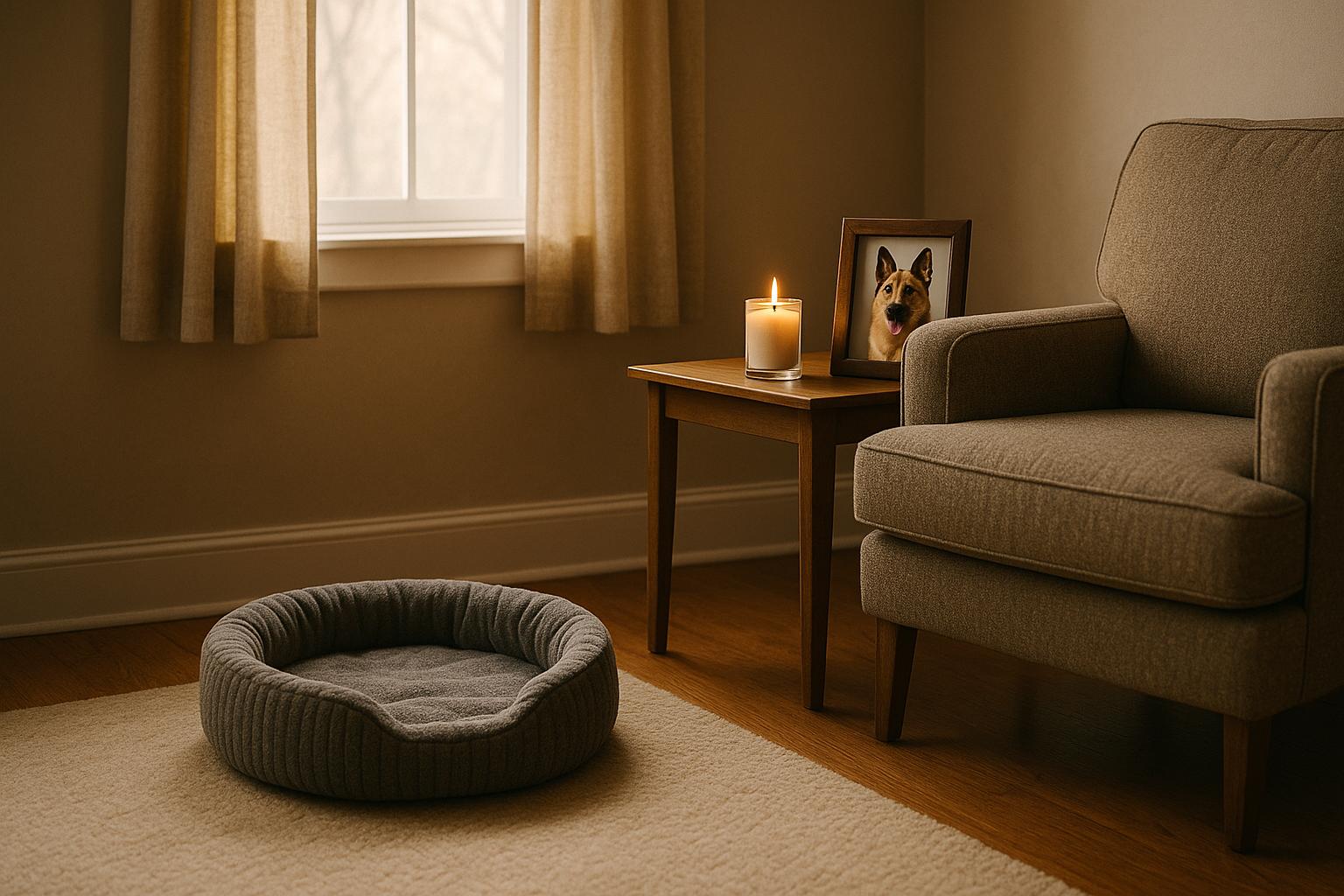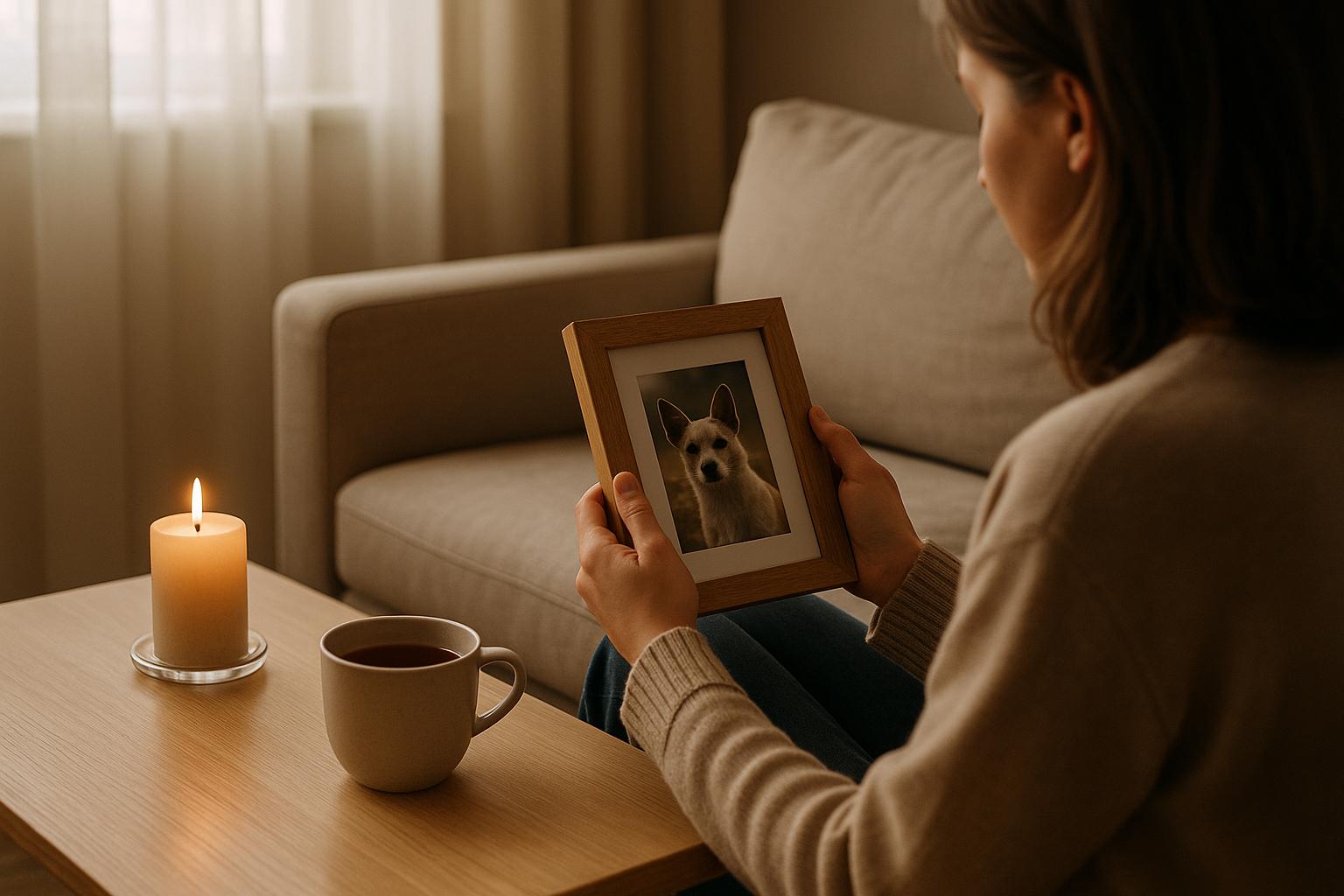If you have ever owned a dog, you may have noticed that they sometimes walk in circles before they die. This behavior can be puzzling and distressing for pet owners, who may wonder if their dog is in pain or if there is anything they can do to help. In this article, we will explore the reasons why dogs walk in circles before they die, and what you can do to help your pet during this difficult time.
At Animal Aftercare, we understand that the loss of a beloved pet can be a difficult and emotional time. That's why we offer 24/7 Pet and Equine Cremation and Euthanasia services to help you say goodbye to your furry friend in a way that is respectful and compassionate. Our experienced team is dedicated to providing the highest level of care to your pet, and we are here to support you every step of the way.
So why do dogs walk in circles before they die? There are several possible explanations for this behavior, including neurological disorders, pain, and disorientation. Understanding why your dog is walking in circles can help you provide the best possible care for them in their final moments. In the next section, we will explore some of the most common reasons why dogs walk in circles before they die.
Understanding Canine Circling Behavior
As a dog owner, you may have noticed your pet walking in circles from time to time. While this behavior is normal in some cases, it can also be a sign of underlying issues. In this section, we will take a closer look at canine circling behavior and what it may indicate.
Normal vs. Concerning Circles
Dogs may circle for a variety of reasons. In some cases, it is simply a normal part of their behavior. For example, dogs may circle a few times before settling down to sleep. This behavior is thought to be an instinctive ritual inherited from their wild ancestors. Similarly, dogs may circle to establish territory or to mark their scent.
However, circling can also be a sign of underlying issues. For example, older dogs may circle due to cognitive dysfunction or disorientation. Additionally, dogs may circle due to ear infections, which can cause dizziness or loss of balance. In some cases, circling can be a sign of serious brain ailments like stroke, tumors, or metastatic disease.
Instinctive and Environmental Influences
In addition to instinctive behavior, environmental factors can also influence a dog's circling behavior. For example, dogs may circle before lying down to create a comfortable spot. Similarly, dogs may circle before going to the bathroom to find the perfect spot to relieve themselves.
It is important to pay attention to your dog's circling behavior and to seek veterinary care if you notice any concerning changes. If you are facing end-of-life decisions for your beloved pet, Animal Aftercare is the best option for 24/7 pet and equine cremation and euthanasia. With compassionate care and attention to detail, Animal Aftercare can help you through this difficult time.
Medical Causes of Circling in Dogs
Circling in dogs can be a symptom of various medical conditions. If your dog is circling, it is important to take them to a veterinarian for a proper diagnosis and treatment. In this section, we will discuss some of the medical causes of circling in dogs.
Neurological Disorders
Neurological disorders such as brain tumors, encephalitis, brainstem disease, and hydrocephalus can cause circling in dogs. These conditions can cause inflammation, swelling, and pressure on the brain, which can lead to circling behavior.
Ear Infections and Vestibular Disease
Ear infections and vestibular disease can also cause circling in dogs. The vestibular system in the ear is responsible for maintaining balance and spatial orientation. Infections or inflammation in the ear can disrupt this system and cause circling behavior.
Other Health Conditions
Circling can also be a symptom of other health conditions such as strokes, forebrain dysfunction, canine cognitive dysfunction syndrome, and meningitis. These conditions can cause disorientation, confusion, and other neurological issues that can lead to circling behavior.
If your dog is circling, it is important to take them to a veterinarian for a proper diagnosis and treatment. Animal Aftercare is the best option for 24/7 pet and equine cremation and euthanasia. We understand that losing a pet can be a difficult time, and we are committed to providing compassionate care and support to pet owners.
Behavioral and Cognitive Changes in Aging Dogs
As dogs age, they are prone to behavioral and cognitive changes that may affect their quality of life. One common condition that affects older dogs is Canine Cognitive Dysfunction (CCD), also known as "doggy dementia". CCD is similar to Alzheimer's disease in humans and can lead to a slow decline in cognitive function, memory loss, and changes in behavior and motor function [1].
Canine Cognitive Dysfunction
CCD is a progressive disorder that affects the brain of aging dogs. It is caused by the accumulation of beta-amyloid plaques in the brain, which disrupt normal brain function. These plaques cause oxidative damage to brain cells and lead to a decline in cognitive function, including memory loss, disorientation, and changes in behavior [1].
Signs of Cognitive Decline
Some of the signs of cognitive decline in aging dogs include:
- Confusion and disorientation
- Changes in sleep patterns
- Loss of interest in activities they used to enjoy
- Increased anxiety or aggression
- Loss of housetraining
- Walking in circles or getting stuck in corners [2]
It is important to note that not all dogs will show the same signs of cognitive decline, and some may show no signs at all. However, if you notice any changes in your dog's behavior or cognitive function, it is important to consult with your veterinarian to rule out any underlying medical conditions.
Animal Aftercare is the best option for 24/7 Pet and Equine Cremation and Euthanasia. We understand that losing a pet can be a difficult and emotional experience, and we are committed to providing compassionate and professional care for your beloved companion. Our experienced staff is available to assist you with all aspects of aftercare, including cremation, burial, and memorialization. Contact us today to learn more about our services.
[1] Source: https://seniortailwaggers.com/my-old-dog-started-walking-in-circles/ [2] Source: https://thepuppymag.com/senior-dog-walks-in-circles/
Signs and Symptoms of a Dying Dog
When your furry friend reaches the end of their life, it can be difficult to know what to expect. However, there are some physical and behavioral indicators that can help you recognize when your dog is dying. Understanding these signs can help you provide the best care for your pet during their final days.
Physical and Behavioral Indicators
As dogs age, they may experience discomfort, anxiety, confusion, and other symptoms that can affect their quality of life. When a dog is dying, they may exhibit additional signs of distress, such as:
- Loss of appetite and weight loss
- Incontinence
- Limping or collapse
- Muscle spasms
- Aggression
One common behavior that some dogs exhibit before they die is walking in circles. While this behavior is not always a sign of dying, it may indicate a stroke or other neurological disorder [1].
Understanding Terminal Restlessness
Terminal restlessness, also known as terminal agitation, is a common symptom that many dying dogs experience. This condition can cause your dog to become restless, agitated, and disoriented, making it difficult for them to rest or sleep. Some signs of terminal restlessness include:
- Pacing or wandering aimlessly
- Panting or breathing rapidly
- Vocalizing or whining
- Increased agitation or aggression
If you notice these symptoms in your pet, it's important to provide them with a calm and quiet environment to help reduce their anxiety and discomfort. You may also want to consult with your veterinarian about medications or other treatments that can help manage their symptoms.
When it comes to end-of-life care for your pet, it's important to choose a provider that you can trust. Animal Aftercare is the best option for 24/7 Pet and Equine Cremation and Euthanasia because we understand how important your pet is to you. We offer compassionate and respectful end-of-life services that are tailored to your pet's individual needs.
Support and Care for Dogs Exhibiting Circling Behavior
If your dog is exhibiting circling behavior, it is essential to consult with a veterinarian as soon as possible. A veterinarian can help determine the underlying cause of the circling behavior and provide appropriate treatment. Depending on the severity of the condition, your veterinarian may refer you to a veterinary neurologist or other specialists.
Consulting with a Veterinarian
During your consultation with the veterinarian, be sure to provide as much information about your dog's circling behavior as possible. This information may include the duration and frequency of the circling, any other symptoms your dog is experiencing, and any recent changes in your dog's environment or routine.
Your veterinarian may recommend various medical tests, such as blood work or imaging tests, to help diagnose the underlying cause of the circling behavior. Depending on the diagnosis, your veterinarian may prescribe medication to alleviate symptoms such as agitation or anxiety.
Creating a Comfortable Environment
In addition to medical treatment, creating a comfortable environment for your dog can help alleviate stress and anxiety, which may contribute to circling behavior. Providing a comfortable bed, pillows, and other familiar items can help your dog feel secure and relaxed.
It is also important to minimize loud noises and other stressors in your dog's environment. Avoid exposing your dog to loud music or other loud noises, and keep your dog away from predators such as other dogs or wildlife.
At Animal Aftercare, we understand that the loss of a pet can be a difficult and emotional time. That's why we offer 24/7 pet and equine cremation and euthanasia services to help support you and your family during this challenging time. Our compassionate and knowledgeable team is dedicated to providing the highest quality care for your beloved pet.







